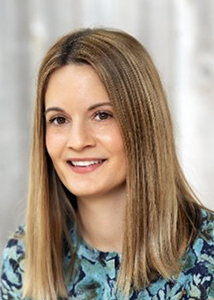Implementation of Population-Based Genetic Testing of Newborn Infants for Prediction of Hearing Loss in Ontario, Canada
April 19, 2023, 11:00 am – 12:00 pm ET
In 2019, Newborn Screening Ontario launched a novel screening approach for genetic permanent hearing loss (PHL) risk involving universal testing of newborn dried blood spots for a panel of penetrant GJB2 and SLC26A4 variants associated with congenital or very early onset PHL. In July 2020, the less penetrant and relatively frequent GJB2 V37I variant was added to the panel. Babies homozygous for this variant, or heterozygous for this variant and a penetrant variant, are estimated to be at ~20% risk for congenital hearing loss and ~50% risk of developing moderate or more severe PHL by age 5. Given the higher frequency of the variant, only compound heterozygotes were initially referred, allowing for optimization of hearing evaluation and surveillance algorithms before a planned expansion in early 2023 to include V37I homozygotes.
Approximately 145,000 babies were screened for penetrant variants only, and another 220,000 for both penetrant variants and compound heterozygosity for a penetrant variant with V37I. Referral of babies homozygous for V37I is currently being implemented. Future directions include development of a next generation sequencing testing approach and addition of OTOF to the gene panel. Variants in this gene are associated with auditory neuropathy spectrum disorder, where infants may have congenital PHL missed by otoacoustic emission screening.

Pranesh Chakraborty, MD, FRCPC, FCCMG
Professor and Physician, Division of Metabolics and Newborn Screening, Dept of Pediatrics, UOttawa/CHEO
Medical Director, Newborn Screening Ontario, Canada
Dr. Pranesh Chakraborty is Professor of Pediatrics at the University of Ottawa, the Medical/Laboratory Director for Newborn Screening Ontario, and the Head of Metabolic Diseases providing care for patients with inherited metabolic diseases at the Children’s Hospital of Eastern Ontario (CHEO) in Ottawa. He also serves as Senior Medical Advisor for the Laboratories and Diagnostics Branch of the Ontario Ministry of Health and chairs Ontario’s Provincial Genetics Advisory Committee. Dr. Chakraborty completed medical school at McMaster University, specialized in medical biochemistry at the University of Western Ontario, and pediatrics at the University of Ottawa, and subspecialized in biochemical genetics at the University of Toronto. He joined CHEO in 2003 as a metabolic disease physician, co-authored a proposal to modernize Ontario’s newborn screening program in 2005 and led its move to Ottawa in 2006. Internationally, he is a member of the ClinGen pediatric actionability working group and was on the organizing committee of the 2020 Association of Public Health Laboratories Newborn Screening Symposium. Finally, he is a principal investigator and co-leads the Canadian Inherited Metabolic Disease Research Network and INFORM-RARE project.

Marie Pigeon, M.Sc.A.
Marie Pigeon received her degree from McGill University School of Human Communication Disorders. She provides support in the development and implementation of program protocols, training, and continuous quality improvement for the Ontario Infant Hearing Program (IHP). Marie has been involved in the addition of the Hearing Loss Risk Factor Screening Program from conception to implementation. She currently works on the genetics team of the Newborn Screening Ontario Hearing Loss Risk Factor Screening program, as well as running the CHEO IHP Designated Training Centre, and providing clinical Audiology care at CHEO.

Lauren Gallagher, MSc, CCGC
Lauren completed an MSc in Biology at Queen’s University (2008) and an MSc in Genetic Counselling from the University of British Columbia (2011). She has been working as a Genetic Counsellor at Newborn Screening Ontario (NSO) for over 10 years. In this role, Lauren participates in clinical operations, patient care and various communications, education, and strategic initiatives of the program. She is proud to have been involved in the development of the risk factor screening program for permanent hearing loss in Ontario, which includes newborn screening for Cytomegalovirus and common variants in the GJB2/6 and SLC26A4 genes. Lauren’s interests include genetic counselling issues surrounding medical uncertainty and incidental findings in newborn screening, and healthcare communications.
Hosted by
- National Center on Birth Defects and Developmental Disabilities
- Office of Genomics and Precision Public Health